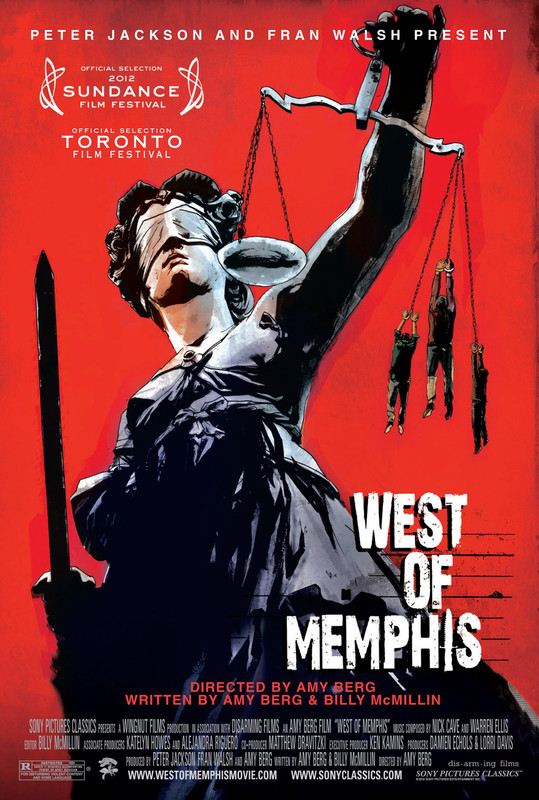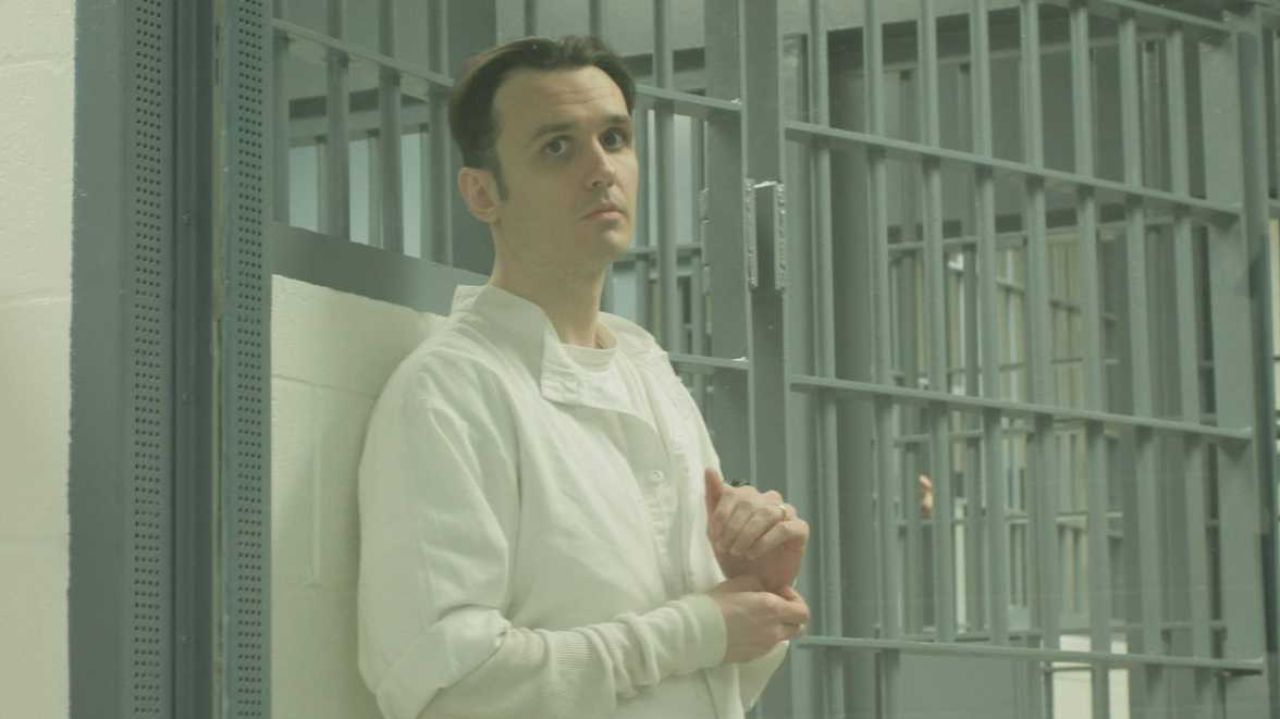As
well as whether it is any good, West of Memphis faces
another, perhaps more important, question; that of whether there is
any point to its existence. There can be no question that Joe
Berlinger and Bruce Sinofsky's monumental Paradise Lost series,
which, like this film, deals with the case of the West Memphis Three,
represents the most important film on a miscarriage of justice since
The Thin Blue Line. What can Amy Berg (director of the excellent
Deliver Us From Evil) really add to the discussion in two and a half
hours that hasn't been said by Paradise Lost in its seven hour
aggregate running time?
In
case you don't know, the case of the West Memphis Three began in May
1993, when three eight year old boys; Steve Branch, Michael Moore and
Christopher Byers were found murdered in the Robin Hood Hills area of
West Memphis Arkansas. This would have been a shocking and heinous
crime anywhere, but in a place like West Memphis; conservative, God-fearing to what some might suggest was the point of paranoia, and
unused to crimes of this nature, it demanded swift and visible
justice. Looking at the horror of the crime scene, Police concluded
that this must be a ritual murder, and scooped up three local
teenagers: Damien Echols, Jason Baldwin and Jessie Misskelley who
were considered strange and seen as likely to be involved with a
satanic cult. Misskelley, who has an IQ of 72, gave an error riddled
confession after 12 hours of interrogation, and at their subsequent
trials he and Baldwin were sentenced to life in prison, while Echols
was handed a death sentence. In the years that followed, thanks
largely to the Paradise Lost films, a Free the West Memphis Three
group started up, the case began to attract wide attention, and some
very influential people began putting money into trying to find a way
to get the three out of prison and exonerated. This, approximately,
is where Berg picks up the story.
For
the first half an hour of her film, Berg lays out the facts of the
case as the prosecution saw them (or, at least, said they saw them)
at the time of trial, in an effort to have us understand how this
could have happened. It's an effective primer on the basics of the
case, though it does leave out some key prosecution witnesses who
appeared in Paradise Lost 1. However, Berg does find time here to
include information that was not in the previous films, notably the
testimony of a second informant, whose testimony on the stand was
clearly devastating to the defence and whose testimony here is
devastating to the state.
The
film is near its best as it digs into the 'facts' presented at trial
and takes them apart bit by bit. Berg re-interviews a jailhouse
snitch who testified against Jason Baldwin, and gets devastating
information from him, and she digs into the forensic analysis of the
crime scene and scene evidence; a process of analysis largely funded
by the film's producers, Peter Jackson and Fran Walsh, with
especially damning and well conceived segments on the wounds on the
bodies and the flaws in the autopsies. A sequence with snapping
turtles illustrating some of these points is one of the film's most
visually striking, as well as one of its most revelatory.
This isn't
to say that this roughly 40 minutes passage of the film is perfect.
While the argument is brilliantly put together, some interviews
are lacking or indeed absent. Why is original trial Judge David
Burnett only in the film for about a minute? Why is a juror who still
believes she convicted the right people only given a couple of
sentences? Where is the more searching, challenging, questioning
when it comes to them? It's also a terrible shame that, as she
destroys his testimony, Berg seems to have been unable to get an
interview with original medical examiner Frank Peretti.
However,
the real problems with the film are in its second half, where the
focus shifts from suggesting reasons why the WM3 should have been found not guilty to
finding an alternative suspect. Paradise Lost 2: Revelations already
tried this, just about accusing Christopher Byers' stepfather John
Mark Byers of the crime (a theory that has dogged him for years
afterwards), and West of Memphis has a not unjust implicit dig at
Berlinger and Sinofsky for taking this route. It is, then, the
height of hypocrisy for this film to spend a good hour trying to pin
the murder on another stepfather; Terry Hobbs. To go in to all the
ins and out of what the film says would be unfair, because this is
the newest and most surprising material in its argument, but the way
it uses some of the 'evidence' against Hobbs – much of it hearsay
from people whose own agendas require questioning – is
disingenuous, and really not far off what was done to the WM3. The
most mishandled information is the piece that initially seems the
most devastating, but the film misses a key piece of contextualising
information in a way that feels at best negligent and at worst flat
out dishonest, both of which are accusations fairly levelled at the
investigation and trial of the WM3.
This
isn't to say that this section is bad, or at all ineffective.
The footage that Berg has got hold of is riveting, particularly a
deposition given by Hobbs when he sued Natalie Maines of the Dixie
Chicks for defaming him. Perhaps the single most striking interview
in the film is with Hobbs' daughter; Steve Branch's half sister
Amanda, now 21 and a drug addict. Hers is a devastatingly sad story
in a film full of them, and you just want to be able to reach into
the screen and hug her.
Happily
Berg pulls the film back into line for a moving final section
focusing on the controversial resolution of the case last year. I
watched it live, it made me cry for many reasons that day, and that
same mix of emotions is present in the film. The best footage in the
whole film comes almost at the very end, as we get to see Damien,
Jason and Jessie as free men. This in itself would be a brilliant
two and a half hour documentary, and that, perhaps, is the ultimate
problem with West of Memphis: it tries to cover all the bases, but,
especially next to the Paradise Lost films, it feels rushed and
sometimes misses out important things. This is a case that will be
examined and re-examined, and it should be, because people need to
learn the lessons of it. West of Memphis is an interesting addition
to the discussion, but for me it's a flawed and ultimately somewhat
disposable one.
★★★
★★★



No comments:
Post a Comment